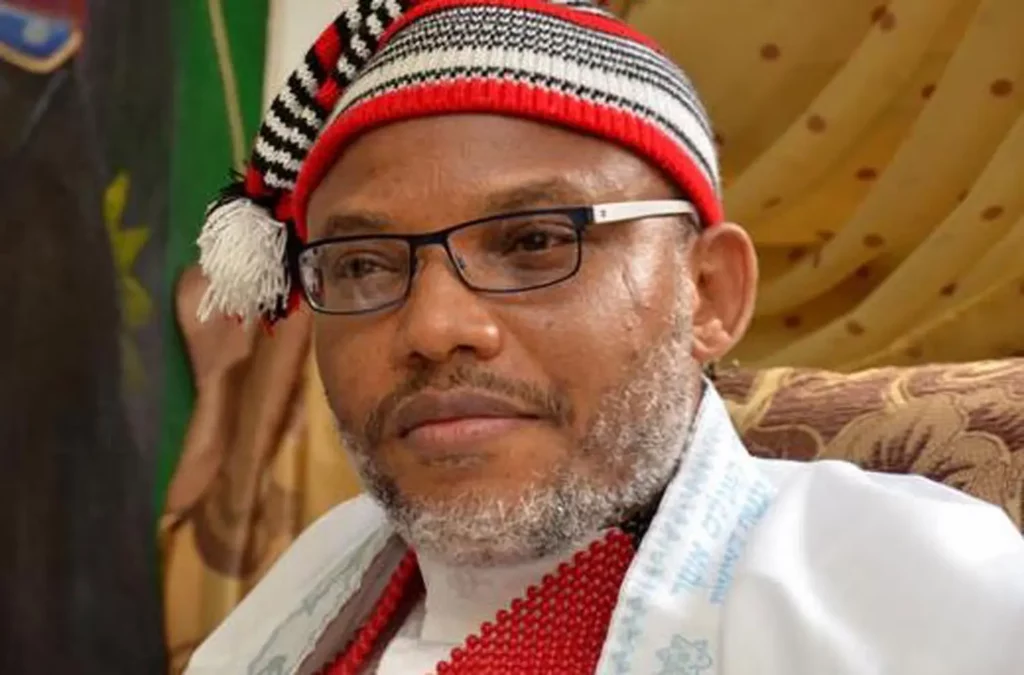The Federal Government has asked the court to hand down the death penalty for Nnamdi Kanu, the leader of the Indigenous People of Biafra (IPOB), after he was convicted on seven counts of terrorism. This move has stirred strong opinions across the country, with many questioning whether the crime truly deserves such a severe punishment.
The Government’s Stand
Following Kanu’s conviction, the government’s lead lawyer, Adegboyega Awomolo, SAN, urged the court to impose the maximum penalty allowed under the Terrorism Prevention (Amendment) Act, 2013. He told the court that for some of the charges, the law does not leave room for discretion, the punishment is death.
Supporters of the government argue that strong measures are needed to deter acts of terrorism and maintain national security. Some, however, see this as excessive, suggesting that the sentence may reflect personal or political bias rather than pure justice.

Public Reaction
Some view the government’s demand as a necessary step to assert authority and prevent future unrest. Others describe it as too harsh, pointing out that using the death penalty in politically sensitive cases could inflame tensions further.
Citizens and legal experts alike are asking whether the severity of the sentence matches the crime. Many wonder if other legal options, like life imprisonment or long-term detention, could achieve the same purpose without risking wider conflict.
Implications for IPOB
For IPOB, the government’s demand for the death penalty is a major setback. The organization now faces the possibility of losing its leader permanently, which could affect its operations, strategy, and public image. Analysts predict that IPOB may increase calls for international attention or legal appeals to challenge the sentence, making this a prolonged and closely watched case.
The Bigger Picture
Is the death penalty a reasonable response to terrorism convictions? Or does it risk being perceived as an instrument of personal malice?
Justice Omotosho will announce the sentencing after reviewing all arguments. Meanwhile, the case continues to evolve, and updates will be shared as the situation develops.

















